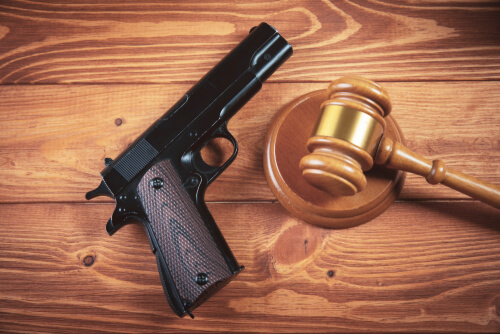On March 20, 2025, a three-judge appellate panel decided the Morris County case of State v. Ahjhir Jones. The principal issue under N.J.S.A. 2C:35-14 concerned the defendant’s Recovery Court application after he pleaded guilty to a gun charge.
Judge Natali wrote for the Court in relevant part: We are unpersuaded by the State’s argument that defendant’s proposed construction, which we adopt, would lead to “an absurd and unreasonable result” such that individuals who have outstanding firearms charges, and enjoy the presumption of innocence, are barred from entry into Recovery Court while those who are found guilty, by plea or otherwise, are legally eligible. On the contrary, it is the State’s construction that would lead to an unreasonable and unfair result.
Indeed, as Judge Hanna correctly noted, the State’s argument fails to acknowledge that under its interpretation, an applicant could be excluded from Recovery Court even though their firearm-related offense was later dismissed. And, the State’s rebuttal–that a dismissal or acquittal would demonstrate the applicant did not possess a firearm and thus they would not be ineligible under subsection (a)(5)–fails to address the reality that dismissals are based on numerous reasons independent of whether a defendant committed the offense charged, such as an unconstitutional seizure, and when the offense is downgraded to a lesser charge, for example.
Our interpretation is entirely consistent with N.J.S.A. 2C:35-14, which does not prohibit individuals with “a prior conviction for a weapons charge” from Track One eligibility, and equally important, it acknowledges the practical considerations and realities attendant to Graves Act offenses. As the judge observed, most Graves Act offenses result in a prison sentence, which would remove Recovery Court as an option, as an incarcerated defendant cannot be sentenced to a concurrent probationary term under those circumstances. In those situations where a Graves Act defendant is sentenced to a non-custodial probationary sentence like defendant, the court can consider that offense to the extent defendant represents a danger to the community under N.J.S.A. 2C:35-14(a)(9).
In sum, we are in full accord with Judge Hanna’s decision to admit defendant to Track One Recovery Court. A firearms charge must still be pending at the time a defendant seeks admission into Recovery Court. The State’s interpretation of subsection (a)(5): renders its first clause superfluous; interposes a restriction not specified by the Legislature; is inconsistent with previous definitions of the same term in subsection (a)(7) under Ancrum; and departs from the clearly defined legislative intent to expand access to Recovery Court.
The final sentence of the opinion will be the strongest basis to affirm this appeal if it goes before the New Jersey Supreme Court. In a case where both sides have logical arguments to support their positions, it makes sense to err on the side of admitting the applicant to Recovery Court when there is an emphasis on expanding Recover Court participation.

